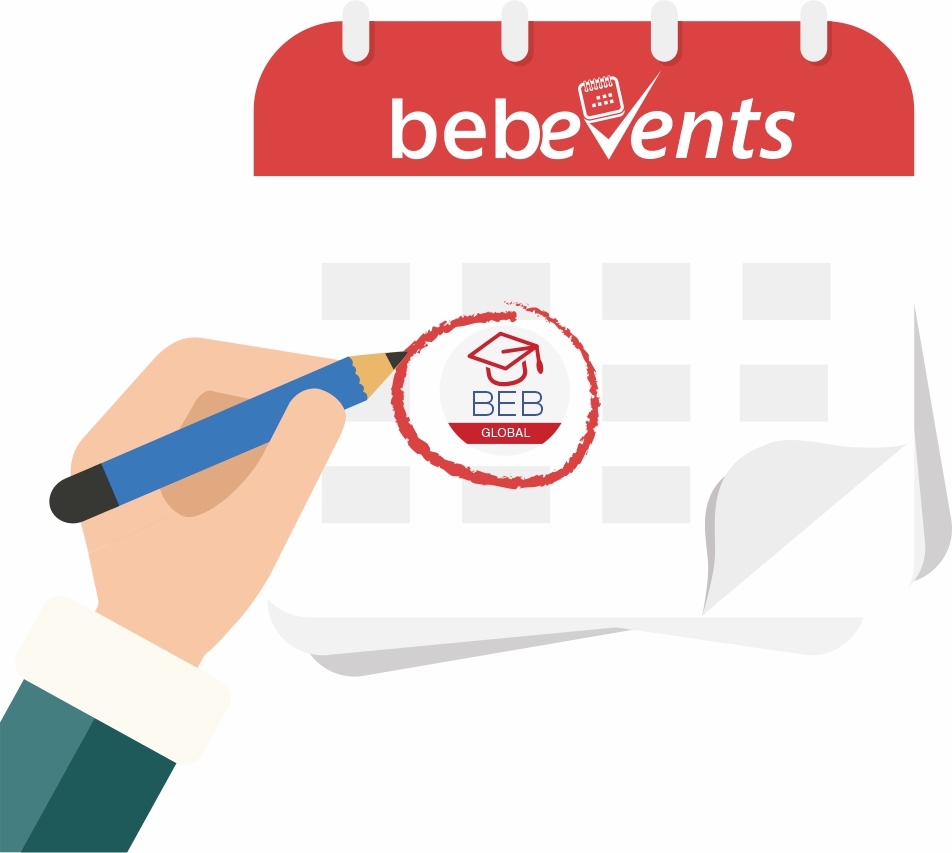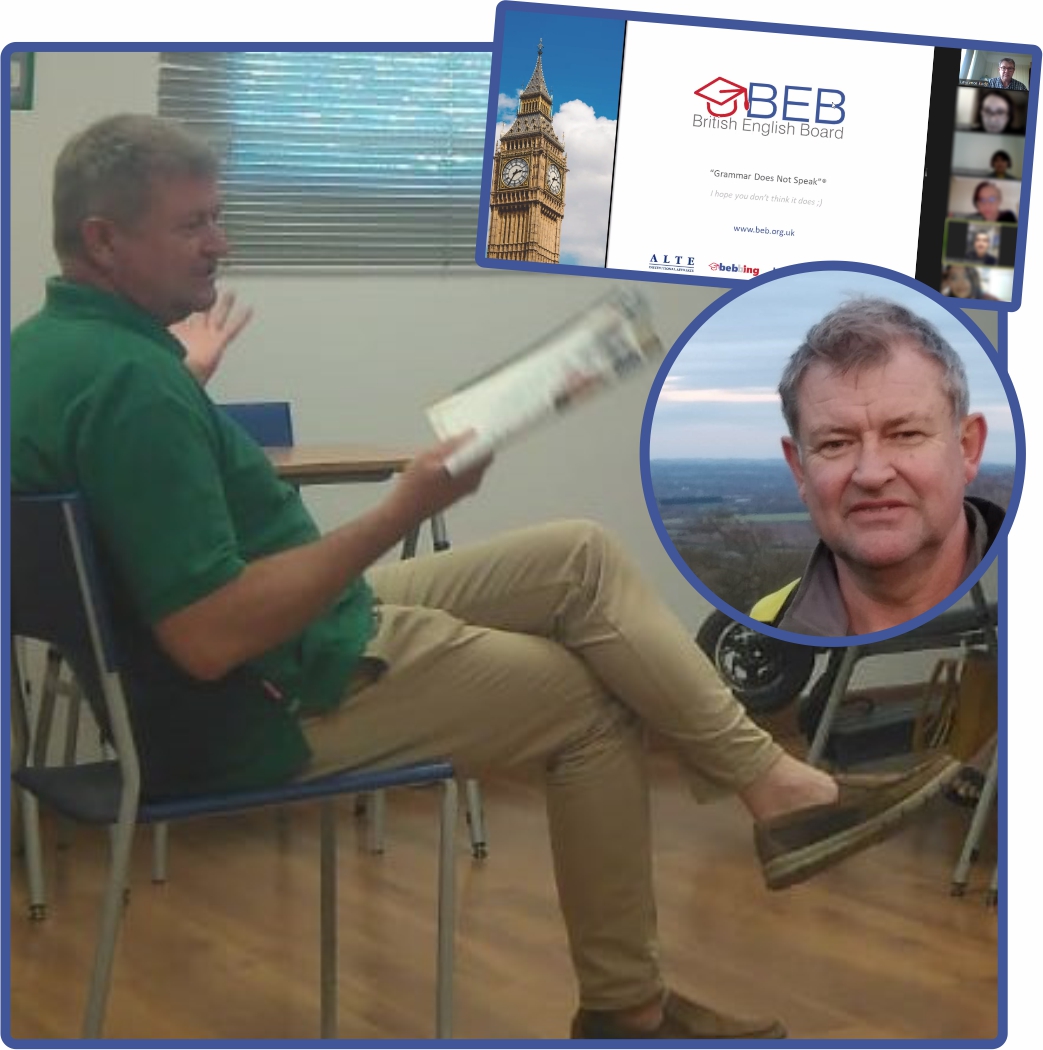Events, Workshops and Bebinars
Upcoming Events by BEB
We invite you to take part in our motivating and practical workshops where you will learn how to plan, prepare and deliver TESOL lessons. And also about other issues related to EFL, methodology and professional development. The workshops open to trainee and experienced teachers are designed to deepen your understanding and build your confidence.
They will be delivered online by videoconference and sessions will last for 1 hour with time for questions at the end. All participants will receive a digital certificate of attendance. You will also find out how you can take your learning further with our online and hybrid teacher training courses. Online courses can be worked through at your own pace and the course is guided and led by one of our highly experienced and qualified tutors.

Workshops and the Tutor
The below workshops have been designed and developed by an experienced ESOL and education professional to set you up with the skills, knowledge, and confidence needed to start and to continue teaching English as a foreign language. We know exactly what it takes to TESOL, which is why we know exactly what you need to begin your own TESOL adventure.
We will also be offering a cycle of mindfulness and social-emotional learning workshops which are suitable for all teachers and educators, as well as having an EFL focus. Mindfulness has been shown to increase performance, focus, well-being, critical thinking, creativity, interpersonal communication, empathy and compassion; all key skills for our uncertain future.
Remember our workshops are subject to availability and can fill up quickly, so book now to avoid disappointment!
The Tutor:
Lawrence Body is an experienced EFL teacher with a Research Master in Education; Social Change and the Teaching Profession, and a MSc in Mindfulness and Emotional Intelligence. He has taught all age groups and all levels for some 30 years. Most of his time has been spent in the tertiary sector in Spain, but he has also had long spells in the UK. Taught all levels including many years with Cambridge and ALTE and all ages and created specific courses for business, psychology, medicine and education. More recently, his focus has shifted to prioritise teacher training at university level and in schools. He also offers TESOL training and other specific professional development courses in Mindfulness, Social Emotional Learning and CLIL. Teacher trainer with Malaga University, the Andalusian teacher training organisation in Spain and the British English Board in England.

General Workshops/Bebinars:
Events are at 6pm UK Time.
If any of the following events is going to be your first event then please contact us; it's free!
1. The Cognitive classroom; how students learn and how teachers teach. (DONE)
Summary: In this session we will explore how teachers can facilitate language learning by understanding how the brain works. Content is based on latest findings from neuroscience and educational research in the field of teaching and education. We will outline the principal factors that influence the mental processes involved in gaining knowledge and understanding, and the framework for establishing a cognitive classroom. These factors will include active teaching strategies, tips on how to set the correct level of challenge, and ideas for creating the right environment to facilitate learning.
2. Emotional Intelligence and language learning and teaching. (DONE)
Summary: An emotional education is being seen as increasingly important. Emotion is a motivator and will influence our performance and influence the way we interact and communicate. Empathy is a key element of communication and in this workshop you will come to understand the importance of emotions and how to use them in the classroom. Emotional intelligence is an indicator of success and comprises four aspects; the recognition, understanding, use and management of emotions.
3. Multiple Intelligence theory applied to EFL. (DONE)
Summary: This workshop focuses on how to take advantage and put into practice Howard Gardner`s theory of Multiple Intelligences in the EFL classroom. The 9 intelligences are: Linguistic, Logical/Mathematical, Spatial, Bodily-Kinesthetic, Musical, Interpersonal, Intrapersonal, and Naturalist. We will see how we can use these intelligences in the design of tasks and activities and to increase learning.
4. Content and Language Integrated Learning (CLIL); a way forward for all teachers. (DONE)
Summary: CLIL is the core methodology for teaching content in a foreign language. However, apart from it being a foundation for bilingual education, the tool-kit of CLIL can also be applied to any language classroom, by shifting the focus to interesting content. After this session, we will understand how the 4Cs of CLIL; Cognition, Content, Communication and Culture and its unique methodology can improve our classes.
5. Evidence Based Teaching; building a practice that is proven to work. (DONE)
Summary: Evidence Based Teaching or EBT is centred around methods that have been proven scientifically and academically to increase learning outcomes. You will gain an insight into the most successful of these techniques and a notion of how to integrate them into your teaching methodology and classroom practice to increase learning. Moreover, you will get some tips on how to do your own research!
6. Developing critical thinking skills in the classroom. (DONE)
Summary: Critical thinking refers to higher levels of thinking that learners need to enable them to think effectively and rationally about what they want to do and what they believe is the best action. It consists of identifying links between ideas, analysing points of view and evaluating arguments, supporting evidence, reasoning and conclusions. In this workshop we will look at how to improve critical thinking skills in the classroom, and give you some ideas for activities.
7. Creativity and FLOW in the EFL classroom. (DONE)
Summary: We can define creativity as the use of our imagination and ideas to invent or do something original, which is deemed worthwhile or useful. Creativity normally relies on the ability to think critically. In this workshop we will look at ways of becoming more creative and providing creative activities for our students.
8. Should we strive to become a better language teacher, or a better language coach? (DONE)
Summary: In this workshop we will look at the difference between teaching and coaching and underline the importance of getting to know our student´s needs and helping them achieve their goals. (If this is your first event then please contact us, we'll add you to the list for free)
If you need any further information please contact us, we will contact you as soon as possible.